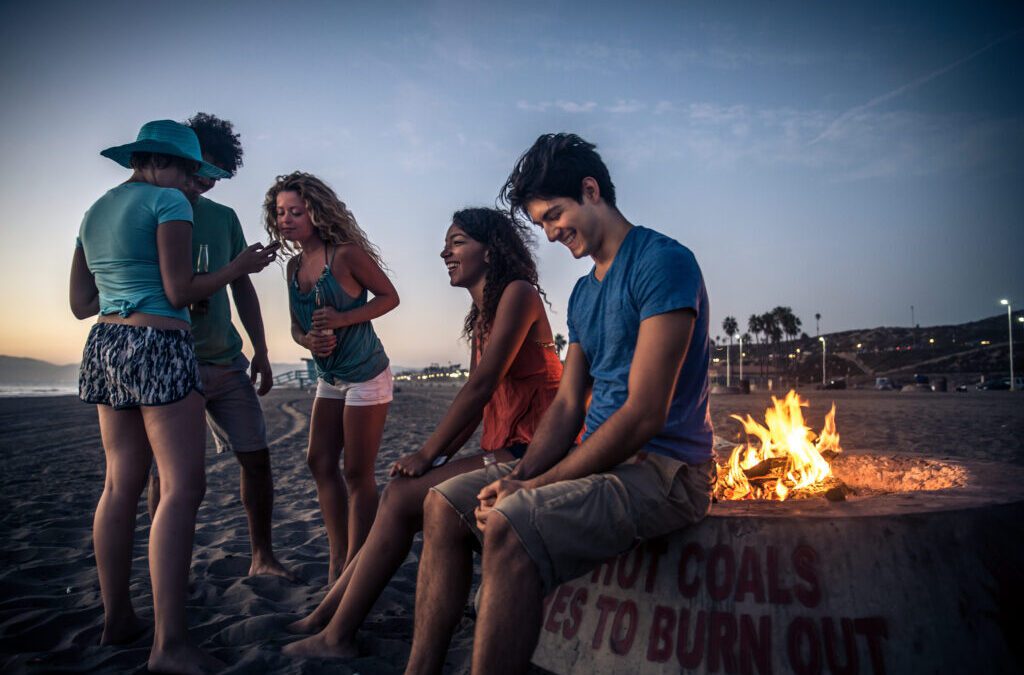Drinking a large amount of alcohol in a short period of time has serious consequences:
With summer approaching, and COVID restrictions lifting, teens may have more access to alcohol. As adults, we understand our limits when it comes to drinking alcohol. Most of us know when we have had too much to drink and when to stop. Our brains—unlike our teens’ brains—are fully developed, allowing us to make better decisions, reduce impulsivity, and better handle daily stressors and social pressure.
Now, imagine being back in high school. You most likely didn’t think through decisions as well as you could have, were easily influenced in social situations, and wanted to do what your friends were doing. Today’s teenagers are no different. Teens that do drink tend to drink large amounts of alcohol over a short period of time—and that’s not good. In fact, it can be deadly.
The Dangers of Drinking Too Much Too Quickly
Body weight, age, and hydration all play a role in determining a person’s ability to absorb alcohol and allow it to enter the bloodstream and affect our ability to function. The more alcohol consumed within a short period of time, the less we are able to process and breakdown the alcohol. Drinking shots, playing drinking games, and drinking several drinks in a short period of time are particularly dangerous as they result in a higher percentage of alcohol in a person’s bloodstream. Drinking on an empty stomach or combining alcohol with medications or other drugs—especially marijuana—can increase the dangerous effects of alcohol.
The Facts about Alcohol Poisoning
Because alcohol is a depressant, it slows down the central nervous system and can slow one’s breathing and heart rate. Losing consciousness, or “passing out,” happens when a person has reached an extremely dangerous level of intoxication. This can cause serious harm, including brain damage or even death resulting from cardiac arrest or dehydration. A person’s blood alcohol level continues to rise even after becoming unconscious as the alcohol in their stomach continues to be absorbed.
Vomiting and passing out are signs of alcohol poisoning. Heavy drinking can slow down or completely shut down involuntary actions, like breathing and the body’s gag reflex, making it possible for a teen to choke on their own vomit. Other signs of alcohol poisoning include confusion, slow or irregular breathing, dehydration from vomiting, and clammy or pale skin.
When to Seek Medical Attention
It is important to know what to do if you suspect that your teen has consumed a large amount of alcohol and may have alcohol poisoning. If they are conscious and responsive, be sure to stay with them to make sure they remain conscious and responsive. Because vomiting is common in this situation, it is important that when they are ready to sleep, they are on their side, not their back, to avoid choking. Be prepared to stay awake with them so you can continue to monitor them throughout the night.
It can be difficult to decide if you think your teen is drunk enough to seek out medical intervention, but it’s best to err on the side of caution. Since untreated alcohol poisoning can lead to death, it is important to seek medical help immediately even if your teen doesn’t exhibit all of the signs and symptoms.
Drinking Prevention: Talk to Your Teen
Let your teen know that their safety comes first. If they do make a mistake, tell them you’re still on their side. Teens raised with encouragement, warmth, and appropriate rules and consequences are more likely to respect their parents’ boundaries. Research shows that kids believe that their parents should have a say in whether they drink alcohol. Take pride in knowing that they really do value your opinion and look to you for guidance as they navigate the teen years.
To prevent your child from heavy drinking and experiencing alcohol poisoning, talk to them. They likely know it’s illegal to drink before they are 21, but do they understand why? Talk to them about the risks of underage drinking, but be sure to do it from a place of concern. Don’t make your conversations one-sided lectures. Have honest and open talks about situations they might find themselves in, like being pressured to drink at a party. Ask open-ended questions and really LISTEN to their answers. Role play how to say no so they are prepared to handle peer pressure.
